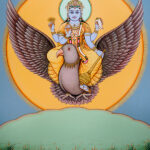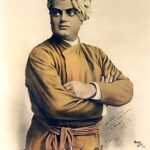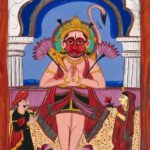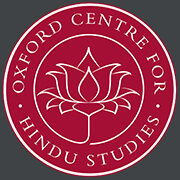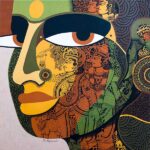Hindu Philosophy: Understanding the Self
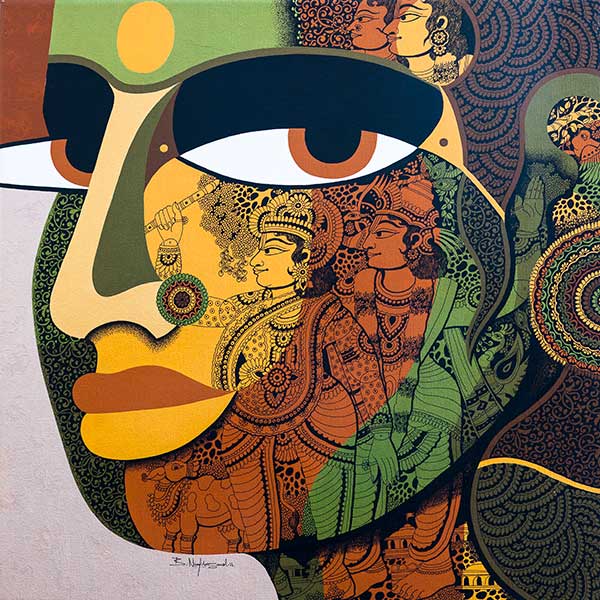
In this course we look at the “self”.
What is a person? Or in a more Indian fashion “who am I?” (ko’ham).
This question highlights what is distinctive about Hindu philosophy in contrast to others, such as the Buddhists, and leads us to other topics such as the existence of God and the nature of time.
It can be argued that the main concern of Indian philosophy is the notion of the self. Focussing on the self enabled Indian philosophy to develop a system where different philosophical positions could engage with each other and clarify their own positions.
We will look at the six main systems of Hindu Philosophy and then move on to modern developments and the interaction with Western philosophy.
Start Date: 13 October 2024
Late enrolments still open for a limited time
Course Duration: Eight Weeks
200 pages
Pathway(s): Hindu Traditions, History of Hinduism, Sacred Texts
On-Demand Video
The main video component of your course. On-demand means you can watch at the time that suits you.
4hr 8min
Campus-wide Zoom sessions
These free Zoom sessions are not part of your main course materials. They are open to students enrolled in any course.
Explore other areas of Hindu studies! Meet tutors and students from other courses!
Tuesday 29 October 12noon Dr Alan Herbert: Vaisnava Ritual in Tension with the Past
Thursday 7 November 2pm Dr Raj Balkaran: The Sanskrit Sound System
Wednesday 13 November 4pm Prof. Chris Chapple: Accounting for the Real: How the Tattvas Invite Eco-Action
Friday 22 November 6pm Prof. Gavin Flood: The Dharmasastras
Saturday 30 November 7pm Daniel Simpson: How to write an essay
These are all UK times. Recordings are available for any sessions you miss
Session One: Vedas, Upaniṣads, Manu, and the Gītā
We begin with an early hymn of the Ṛg–veda that speaks of the nature of the universe. The earliest Upaniṣads speak of the identity of the individual self (ātman) with an absolute reality (brahman). Finally, the Bhagavad-gītā speaks of the self as an individual that reincarnates according to its action. Inspired by the Gītā, the Śvetāśvatara-upaniṣad presents a view of the self as distinct from the world and transcendent reality. Together, these texts lay the foundations for future, systematic philosophies.
You can’t see the seer who does the seeing;
you can’t hear the hearer who does the hearing;
you can’t think of the thinker who does the thinking;
and you can’t perceive the perceiver who does the perceiving.
The self within all is this self of yours. All else besides this is grief.Bṛhadāranyaka-upaniṣad 3.4.2
Session Two: Mīmāṃsā – The School of Interpretation
The central tradition of Vedic philosophy is Mīmāṃsā, the school devoted to interpretation and preservation of the Veda. This is a philosophy of human action rather than the timeless self. It emphasises a duty (dharma) to carry out the injunctions of the Veda as part of the sacred order. Crucial to the understanding of the self is language and the Mīmāṃsā developed a philosophy of the power of language with humans subject to the injunctions of sacred language.
The style of this philosophy serves as an example of how Indian philosophy is generally presented. One voice, the Siddhāntin, lays out a proposition and another voice, the Pūrvapakṣin, raises objections. There is often a statement, followed by four possible objections which are met by the Siddhāntin in order to establish the conclusion – the Siddhānta.
Session Three: Vedānta – The School of Knowledge
Zoom Session: Introducing Vedanta
Vedānta encompasses a broad spectrum of views of the self that unfolded with the same philosophical tradition. Rather than viewing human action as the most important characteristic of a person, Vedānta sees knowledge (jñāna) as most important. Non-dualist Vedānta – Advaita Vedānta – maintains that the self can perceive itself as identical with the absolute reality. The most famous exponent of this school is Śaṅkara. A later school of Vedānta advocated by the philosopher Rāmānuja argued that the self is not identical with absolute reality, but nevertheless participates in the being of God at liberation. While the dualist tradition – Dvaita Vedānta – developed with Madhva, argued that the self is completely distinct from any other category.
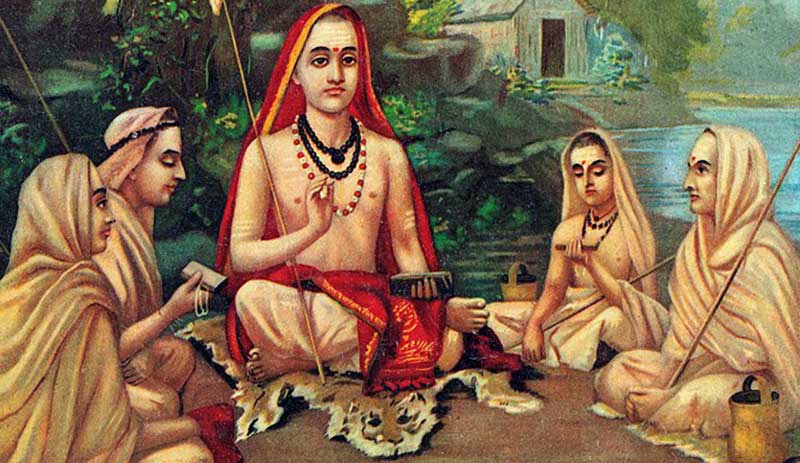
Vedānta became famous as the central philosophy of Hinduism in the nineteenth century, especially with Swami Vivekānanda, and a western Vedānta became popular in the later nineteenth and twentieth centuries. There are strong continuities with the Vaiṣṇava tradition. Rāmānuja and Madhva can be classified as major Vaiṣṇava theologians and it is probable that Śaṅkara himself, despite his name, was a Vaiṣṇava because nothing “Śaiva” follows from him. We might even say that the Vedānta is the theological expression of the Vaiṣṇava religion.
Session Four: Sāṃkhya – The School of Enumeration; the Roots of Yoga
Stepping sideways, we will next examine the ancient philosophy of Sāṃkhya, the enumeration school, so called because it enumerates the categories that comprise the universe, which includes the self. This is the philosophy that lies behind Patañjali’s Yoga.
The origins of this school reach back into the Upaniṣads, possibly influenced by Buddhism and Jainism. This philosophy presents a strict duality between the individual self (puruṣa) and matter (prakṛti). The purpose of life is for the self to separate from matter and to realise its natural state of isolation (kaivalya) from matter. Sāṃkhya philosophy is articulated by Īśvarakṛṣṇa in his verses on Enumeration and we will examine this text.
Session Five: Nyāya and Vaiśeṣika – Logic and Atomism
As one of the orthodox six systems we also have the important tradition of Logic or Nyāya and the related Vaiśeṣika school. Here the self is considered distinct, and liberation is understood as an unconscious state. We will focus on arguments for God’s existence and the relevance to selfhood. We will also see how this philosophy takes on a new form in modernity. The school that became known as Nyāya-Vaiśeṣika is important in the history of Indian philosophy and, indeed, in the history of world philosophy because it develops both a system of reasoning and an account of the world as experienced.
Session Six: Non-Dual Śaiva Philosophy
By the seventh century, philosophies in India were clearly demarcated and there was lively theological and philosophical debate between them. On the one hand were orthodox schools of philosophy that accepted the Veda as revelation, on the other there were traditions that claimed their own revelation superseded that of the earlier tradition. Among these, a religion focused on the deity Śiva emerged and flourished, becoming the dominant religion in India from around the seventh to the thirteenth century in what has been called “the Śaiva age”.
According to Śaiva Siddhānta, the self is eternally distinct from God. On the whole, Śaiva philosophy develops outside of the Vedānta, drawing not so much on the Vedas as its own scriptural revelation of the Tantras.
Session Seven: Hindu Philosophy in the Modern World
Hindu philosophy is not stagnant. With the sixteenth century we witness two important developments: the emergence of a new understanding of the self with Caitanya and the religion focussed on Kṛṣṇa; and as we saw in session 5, the Nyāya philosophy of Shiromani that develops new arguments and ways of seeing the world. Both of these developments are in Bengal. Then in the nineteenth century we have what became known as the Hindu Renaissance, again mostly in Bengal, with figures such as Vivekananda.
Such new ways of thinking, informed by nationalism, articulated specifically Indian modes of thought that both reject traditional theological reflection and bear witness to the reassertion of traditional ways of thinking. Such a history of ideas occurs within a turbulent history of the development of Muslim rule, its decline, British colonialism, and the emergence of India and a modern state. The intellectual history of India has shifted both under the weight of its own momentum and in response to historical events.
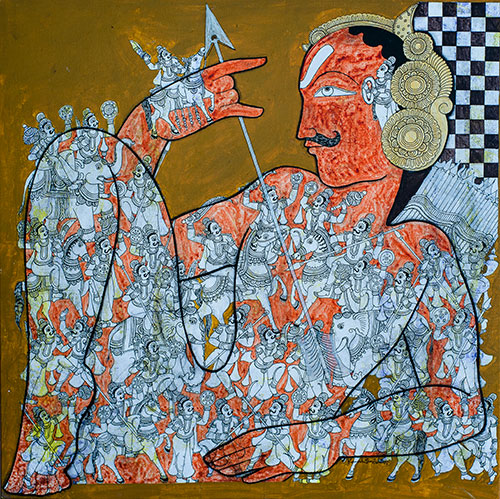
Session Eight: Hindu Philosophy and the Experience of Consciousness
One type or style of philosophy that has resonated with Indian philosophy is Phenomenology. Phenomenology focuses on the first-person experience of consciousness. This is a kind of philosophy, developed in the twentieth century, which became very influential – even on modern Indian philosophy. We will examine interesting links between some of the philosophies we have examined and modern Indian philosophy that adopts phenomenological ways of thinking. This connection exists because both Phenomenology and Indian Philosophy share an interest in and understanding of consciousness as a key to understanding the world and the human place within it.
Your Tutor

Prof. Gavin Flood
Author of The Tantric Body, the definitive text on Tantra. Prof. Flood is Professor of Hindu Studies and Comparative Religion at Oxford University, Academic Director of the Oxford Centre for Hindu Studies, Senior Research Fellow at Campion Hall, and Yap Kim Hao Visiting Professor of Comparative Religious Studies at Yale-NUS Singapore.

